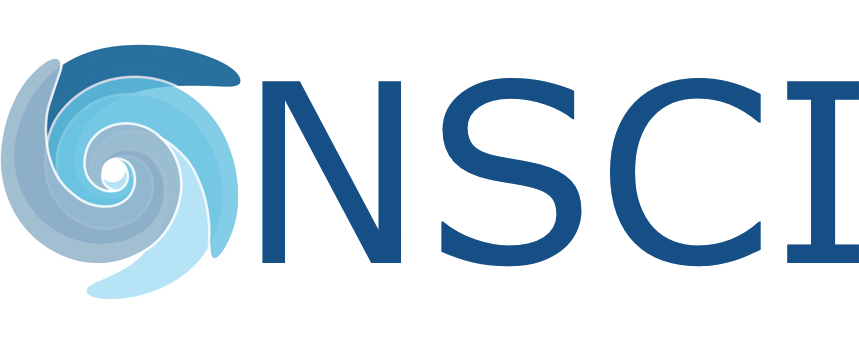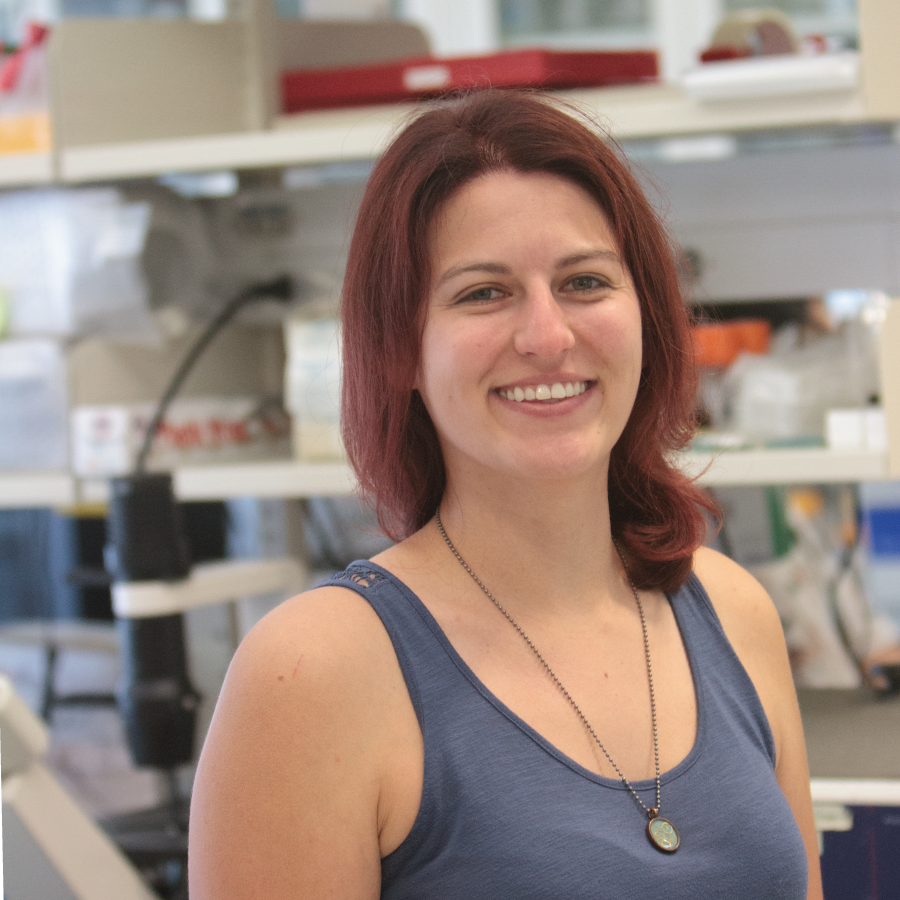Liz Fisher Ph.D.
During her undergraduate career, Dr. Fisher focused on dissecting protein-protein interactions important in the progression of cancer. Specifically, she worked on the interaction between Gα12, a protein important in metastasis and cancer progression, and Radixin, a cytoskeletal protein involved in cell motility. Using in vitro pull-down techniques, she identified key areas on Gα12 which bound to Radixin. This work led to a poster presentation at the American Society for Cell Biology’s annual meeting, as well as a contribution to a publication.
- Fisher ES, Montgomery ER, Olson CM, Ritchie BJ, Choi TY, Meigs TE. Dissection of Gα12-mediated Signaling Pathways through a Mutational Analysis of Effector Binding. American Society for Cell Biology; 2008; San Francisco, CA.
- Fisher ES, Meigs TE. Dissecting the Binding Interface Between Gα12 and Radixin through Mutational Analysis. UNC Asheville Journal of Undergraduate Research. 2009.
- Ritchie BJ, Smolski WC, Montgomery ER, Fisher ES, Choi TY, Olson CM, Foster LA, Meigs TE. Determinants at the N- and C-termini of Gα12 Required for Activation of Rho-mediated Signaling. Journal of Molecular Signaling. Mar 25; 8 (1):3. PMID: 23531275
While in graduate school, her research began with contributions to understanding the molecular interactions between midline glia and axons in the developing Drosophila embryo. She performed a forward genetic screen to identify more molecular players involved in these interactions. This project led to the publication of a novel tool for studying midline glia in Drosophila. She later focused on researching astrocyte metabolism following stroke. She discovered that enhancing astrocyte oxidative metabolism following stroke in mice is neuroprotective, a significant finding in this field. This work led to presentations at the prestigious Gordon Research Conference and the Cold Spring Harbor conference. She also had the opportunity to work with leaders in the field of astrocyte metabolism to publish a review on the subject.
- Banerjee S, Mino R, Fisher ES, Bhat MA. A Versatile Genetic Tool to Study Midline Glia Function in the Drosophila CNS. Developmental Biology. 2017 429(1):35-43. PMID: 28602954
- Parpura V, Fisher ES, Lechleiter JD, Shousboe A, Waagepetersen HS, Brunet S, Baltan S, Verkhratsky A. Glutamate and ATP on the Interface Between Signaling and Metabolism in Astroglia: Examples from Pathology. Neurochemical Research. 2017 42:19. PMID: 26915104
- Fisher ES, Holstein D, Lechleiter JD. The Role of Glutamate Metabolism in Purinergic-enhanced Neuroprotection after Brain Injury. GRC Glial Biology: Functional Interactions Among Glia & Neurons. 2017 March; Ventura, CA.
- Banerjee S, Paik R, Mino RE, Blauth K, Fisher ES, Madden, VJ, Fanning AS, Bhat MA. A Laminin G-EGF-Laminin G Module in Neurexin IV Is Essential for the Apico-Lateral Localization of Contactin and Organization of Septate Junctions. PLoS ONE 2012 6(10): e25926. PMID: 22022470
As a postdoctoral fellow, Dr. Fisher’s research focuses on immune modulation in the spinal cord following injury, building off work established in the Temple Lab. This cutting-edge technology involves using biodegradable microbeads administered to the site of the injury, which are taken up macrophages to alter their phenotype to a pro-regenerative state. Dr. Fisher and her colleagues have extended this work to perform single cell analysis on immune cells which infiltrate the spinal cord following injury and hopefully combine this with administering the beads to find novel molecular pathways involved in spinal cord injury and repair.
- Lowry N, Goderie SK, Lederman P, Charniga C, Gooch MR, Gracey KD, Banerjee A, Punyani S, Silver J, Kane RS, Stern JH, Temple S. The effect of long-term release of Shh from implanted biodegradable microspheres on recovery from spinal cord injury in mice. Biomaterials. Apr 2012 33(10): 2892-901. PubMed PMID: 22243800.
- Lotz S, Goderie S, Tokas N, Hirsch SE, Ahmad F, Corneo B, Le S, Banerjee A, Kane RS, Stern JH, Temple S, Fasano CA. (2013) Sustained levels of FGF2 maintain undifferentiated stem cell cultures with biweekly feeding. PLoS One 8:e56289. PMID: 23437109.

